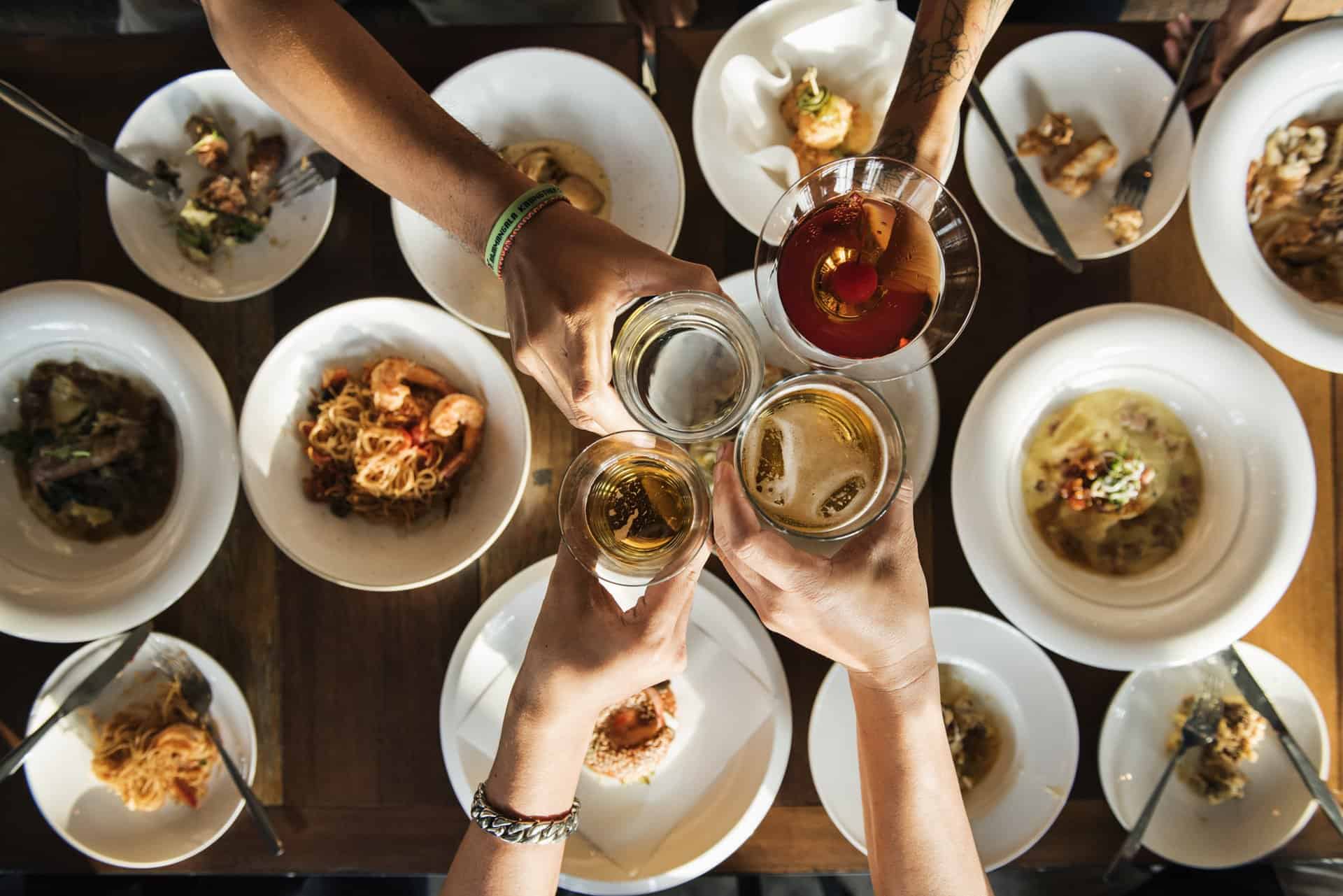Mindful Eating During the Holidays

You may hear a lot of advice to “slow down” or “savor the moment” during the holidays, but how often are you actually abiding by these well-intended words? If you have trouble with mindful eating, you’re not alone. It can be difficult to decode what “mindfulness” actually means and how to practice it in the real world when you’re a student, a parent, a dedicated hard-worker, or you just find yourself continually going from one task to another without stopping for a breath.
Why is mindfulness so important for our well-being? Mindfulness and intuitive eating can help you become more in tune with your hunger cues, put the joy back in eating, and prevent mindless eating. Listen, it doesn’t take a mind-reader to see mashed potatoes, pies, turkey, and mouthwatering side dishes in your holiday-future! It’s okay- there’s still hope for a healthy holiday! Let’s break down a few terms and tips to practice mindfulness during the holiday season.
First, how do we define “mindfulness”, and what is “intuitive eating” ?
Mindfulness
Mindfulness is an active awareness and attention to the present moment. When a person is mindful, they observe thoughts and feelings without judgement. The opposite of mindfulness would be when we bash ourselves for “not being positive enough” or “being a Grinch” or, when we text under the table at Thanksgiving dinner. The key concept of mindfulness is to live every moment in a meaningful way without letting our worries, ruminating thoughts, OR our phones, get in the way of experiencing life!
Intuitive Eating
Intuitive eating means rejecting the diet mentality, keeping awareness and attention to your hunger and fullness cues without judgement, and avoiding the use of emotions to fuel eating habits. An intuitive eater has a peaceful relationship with food and does not label food “good” or “bad”. They eat a balance of “play food” and nutritionally balanced foods.
5 Holiday Mindful Eating Tips
1. Take breaks
Although it’s tempting to scarf down a Thanksgiving meal or holiday treats, slowing down your bites helps to register your satiety, or feeling of fullness. It can take up to 20 minutes for your body to feel full. A few action tips here: Put down your fork (or holiday cookie) in between bites, take a pause and sip water, or use your non-dominant hand to eat.
2. Keep visual cues of what you eat
This means lingering with your plate for 5 minutes after you finish eating, keep wrappers or whatever “evidence” you have of finishing a snack or meal. This will keep you visually accountable for what you’ve eaten. No need to let dishes or wrappers pile up forever- just avoid rushing to clean up immediately after your last bite!
3. Use your senses
Hear, see, smell, touch, and taste. Often we eat in “autopilot” and hardly register eating at all. One of the key components of mindful eating is becoming aware of your senses and using them during meals and snacks, sans distractions! Use the senses that are applicable and appropriate for the foods you’re eating (you can be mindful without “touching” your soup, it’s okay!)
4. Let go of your inner food critic
It’s easy to fall back on self-criticism during the holidays. We tend to eat more often, or eat foods we don’t normally eat, and poof! We associate our lack of self-control with being “bad”. Part of the mindful eating philosophy is staying aware of our inner food critics. Foods are not a measure of self-worth, so when you hear self-criticism, recognize it and then let it pass.
5. Communicate your goals to loved ones
This one is tough, but it’s SO helpful in the long run! Communicate in advance that you are focusing on improving your health and wellness. You can even offer to bring a healthy side dish to ensure a portion of your plate is full of wholesome, nutrient dense food! The more you express yourself prior to the event, the less you’ll have to feel like “defending yourself” during it leaving you more time to focus on food and spending time with loved ones.
References
Albers, S. (2012). Eating mindfully. New York, NY. MJF Books.
Psychology Today. (2016). What is mindfulness? Retrieved from https://www.psychologytoday.com/basics/mindfulness
Tribole, E. & Resch, E. (2012). Intuitive Eating: A revolutionary program that works. New York, NY: St. Martin’s Griffin.

